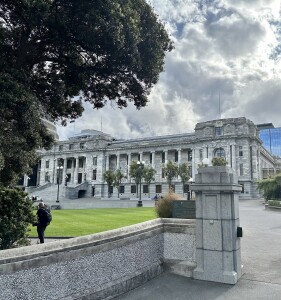The New Zealand Parliament, as a pivotal institution in the country’s governance, embodies democratic principles while adapting unique features reflective of its national context. Situated in Wellington, this unicameral legislature is vested with significant responsibilities across legislative creation and government oversight. The singular chamber, known as the House of Representatives, consists of 120 elected Members of Parliament (MPs), who serve three-year terms and are pivotal in both representing public interests and enacting legislation. The operational head of this body, the Speaker of the House, plays a crucial role not only in facilitating orderly parliamentary debates but also acts as an intermediary between the Sovereign’s representative—the Governor-General—and the Parliament itself.
In fulfilling its legislative functions, the New Zealand Parliament scrutinizes and passes bills through comprehensive debate stages—initiated either as government or members’ bills—ensuring thorough public representation and legal examination before these become law. This meticulous process underpins the transparency and accountability expected in democratic governance. Beyond legislation, MPs actively engage in oversight mechanisms such as Question Time and select committees to interrogate governmental policies and expenditure—a critical component ensuring executive accountability to legislative scrutiny.
Moreover, annual budget reviews stand out as a fundamental function where MPs evaluate and approve state financial plans, reflecting priorities that resonate with national needs and public aspirations. Debates within the House serve not just as procedural necessities but are instrumental in shaping policy outcomes that directly impact citizens’ lives. These interactions often extend beyond mere policy adjustments to influence broader national discussions reflecting contemporary socio-political climates.
Conclusively, New Zealand’s parliamentary system champions democratic ideals by integrating rigorous legislative processes with effective governmental oversight. Its structure supports a dynamic platform for advocacy and decision-making that mirrors modern democratic values interwoven with distinctive local nuances—an essential beacon guiding New Zealand’s political landscape towards informed citizen-centric governance.

